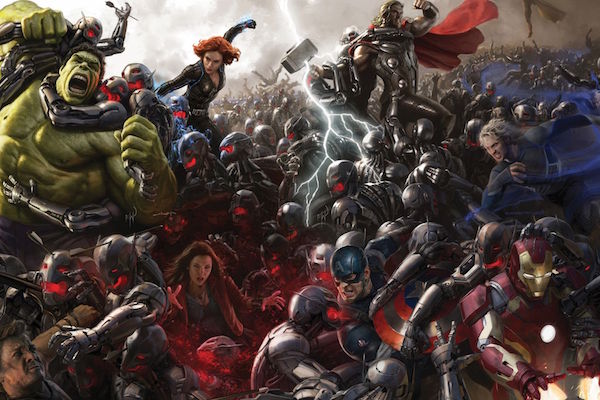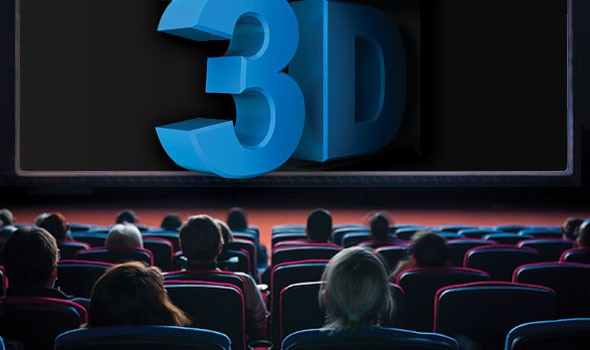The Sunday Rumble: December 11, 2016

Welcome to the Sunday Tumble, a weekly spot in my publishing schedule when I can rant, rave, and otherwise opinionate about the world of cinema and popular entertainment. I might not say much that’s intelligent, but this is where you’ll get the raw, unfiltered me.
Given 2016 is about to draw to a close, most online and print media use the last few weeks of December to gather their thoughts in assembling their year-end Best Of lists. Typically, the best and worst films of a calendar year are assessed and given weighted metrics to determine which film of all the many thousands released each year is the “best”.
I always struggle with these kinds of lists because in order to adequately put together one of substance and quality, one has to have seen the vast majority of films released across the globe annually; while I watch a lot of movies, that’s far more than I’m capable of viewing without ensuring my wife kicks me to the kerb in disgust. Also of some requisite is a viewing of a broad spectrum of films, and while I’m as open minded about what films I watch as anyone else, I there are simply too many films across too many platforms and media to possibly warrant consideration for a “best of” list of any estimable value.
 Not to mention, these lists are entirely subjective. Take, for example, Arrival, the recent release starring Amy Adams, which was almost universally acclaimed by professional and semi-professional cinema writers. Now, if you venture onto Twitter (as I do) you’ll see that there’s equally plenty of solid, well respected film bloggers who didn’t like it, or didn’t find it that great. Whether the film is “great” or the “best” of 2016 is something I would have issues with myself, largely because I’m sure there’s another film or twelve out there that I haven’t seen that might actually be better.
Not to mention, these lists are entirely subjective. Take, for example, Arrival, the recent release starring Amy Adams, which was almost universally acclaimed by professional and semi-professional cinema writers. Now, if you venture onto Twitter (as I do) you’ll see that there’s equally plenty of solid, well respected film bloggers who didn’t like it, or didn’t find it that great. Whether the film is “great” or the “best” of 2016 is something I would have issues with myself, largely because I’m sure there’s another film or twelve out there that I haven’t seen that might actually be better.
It’s largely for this reason that I don’t do many “best of” lists. While I don’t imagine many of my online compatriots would willingly give out information they don’t believe, there’s an argument to be made that nobody could possibly see all the films made each year (without serious time deficits!) and to suggest one film is better than another, or excluding a film simply because somebody hasn’t seen it yet, is disingenuous to the very idea of a “best of” list. I guess some might suggest a “best films I’ve seen this year” as a way of avoiding the issue, but there’s plenty of professionals out there who widely proclaim certain films to be better than others each and every year. I’ll leave them to it.
**
This year I’ve made a concerted effort to broaden my cinematic horizons. I’ve gone headlong into the world of silent cinema, a genre I admit I’d long considered somehow lesser quality or “boring” simply because the actors didn’t speak and the visuals, acting and stories were often very simplistic. Oh, how wrong I was. Silent films have a sparkling charm all of their own, despite their technical limitations, and some, such as Charlie Chaplin’s The Great Dictator or 1927’s Best Picture winner Wings, rise well above all others to become some of the most iconic films of all time.
While my Alfred Hitchcock film series has languished (I promise, I’ll return to it soon) I did kick off the year with several Charlie Chaplin film reviews, which legitimately surprised me how well they’ve stood the test of time. I’m working my way towards snagging some of Chaplin’s earlier short films as well to watch, as they’re sadly out of print and hard to find down here in Australia. Revisiting Fritz Lang’s Metropolis this year, with its brilliant restoration available now on BluRay, was also a delight, reminding me not only how wonderful the film is but also how much I’m growing as a fan of cinema.
I’m sitting on a pile of Buster Keaton shorts ready to go next year, and I’m going to attempt to track down some of the films of The Marx Brothers and several other iconic silent screen stars in due course, and continue my exploration of some of cinema’s earliest years. If you’re a young film fan and you’re thinking silent film is a dead art and not worth visiting or watching, can I exhort you to reconsider: there are many silent films out there that are pure visual gold (such as Chaplin’s Modern Times, or his comedic classic The Gold Rush, and then there’s the technical brilliance of FW Murnau’s Sunrise… wow) and you’re doing yourself a disservice by skipping them.
**

Of the many conversations I’ve had with people over the course of the last 12 months, more than a few have been a railing against the demise of film, specifically the quality of films released. There’s a segment of the film community who believe films these days are becoming soulless, commercial ventures with less and less creative vigor, especially compared to classic films of the early 20th Century.
This is a valid argument, and if you squint a little you can make the argument that with the rise of the blockbuster we’ve lost a lot of the creative ingenuity Hollywood once developed. By way of comparison, watch the original 1939 Wizard Of Oz, and then watch the more recent Oz The Great And Powerful. The original film boasts truly remarkable visual wizardry for 1930’s technology, so much so that as a film it stands the test of time. Oz The Great And Powerful, by comparison, feels a lot less specific and far more homogeneous, a digital trickery of vivid colours and computer effects driving the plot, so that, in about five or ten years, it probably won’t look as good or stand up to scrutiny in this ultra-hi-def 4K world.
 Of course, it’s easy to suggest the quality of films coming out is in decline when there’s so many. Fifty or so years ago we had half the number of films being released each year, and fifty years before that it was far less again. We’ve reached a point where it’s quantity, not quality, so of course there’s going to be a significant increase in turds at the Cineplex each week. But if you look harder, you’ll find great films in local arthouse cinemas, direct streaming or digital platforms releasing great low-cost films across the internet, or even YouTube for some quality filmmakers producing decent material. It’s not hard, it’s just harder than it used to be.
Of course, it’s easy to suggest the quality of films coming out is in decline when there’s so many. Fifty or so years ago we had half the number of films being released each year, and fifty years before that it was far less again. We’ve reached a point where it’s quantity, not quality, so of course there’s going to be a significant increase in turds at the Cineplex each week. But if you look harder, you’ll find great films in local arthouse cinemas, direct streaming or digital platforms releasing great low-cost films across the internet, or even YouTube for some quality filmmakers producing decent material. It’s not hard, it’s just harder than it used to be.
Of course popular culture is dominated by the rise of modern commercial blockbusterism, the easy to watch, never-gonna tax-the-intellect visual splendour of artificial characters, plots and franchise building churning out of the studio system each year. People who despise this kind of thing had simply better get used to it, because it’s not going to go away; if anything, it may shrink as audience fatigue with ongoing “universe” building becomes too complex to handle.
How many MCU’s do you think the world really needs? DC’s big-screen universe continues to lurch towards an iniquitous reboot, while Universal’s recently launched Monsters Universe, beginning with Tom Cruise’s The Mummy, isn’t the attention-grabber I was hoping for with that first trailer. It looks too much like Cruise’s other films to really stand out, and given the quick fade-out of Cruise’s Jack Reacher franchise I’d suggest he’s best to stick with Mission Impossible for the foreseeable future.
Universe building has become the Next Big Thing for Hollywood. With each and every fad there’s a shorter and shorter shelf-life – a few years back it was the whole IMAX thing, with parts of films shot in IMAX format to lure high-roller viewers into the biggest screens around – now, filmmakers can shoot digitally in resolution nearing or exceeding IMAX anyway, and shoot an entire film that way. 3D waxes and wanes in audience appreciation indexes seemingly every year, the zenith being James Cameron’s Avatar and the format slowly reducing itself year after year. Heck, even the BluRay 3D release catalogue these days looks decidedly threadbare. And the UHD format is yet to decide on or introduce a 3D version of its software. So that new 3D flatscreen you bought a few years ago is nothing but an expensive doorstop.
The trouble with Universe building is that it comes with a pretty acute problem to overcome; that of audience confusion. Most people don’t want to watch a film having to have seen a dozen previous films in order to get the story; it’s accepted with the MCU films mainly because they were the first to really do it, and do it well. Now, with everyone trying to build on that idea, going to the cinemas has become something of a dartboard as to whether you’ll understand what’s happening if you skipped last month’s franchise entry. Interlinked cinematic franchises tend to become confusing for an audience, particularly if it isn’t earned (like Universal’s Monsters effort) or even wanted (like that abysmal Insurgent/Divergent shit) and just because Warner Bros made big bank with Harry Potter doesn’t mean every new idea needs a five-film series just to tell a story.
 With a few exceptions, audience’s shouldn’t need an entire series of previous films just to enjoy your latest movie. The James Bond franchise is enjoyable because of this, each and every film exists in and of itself, and can be enjoyed purely as a one-off or as part of a grander scheme. The Daniel Craig films have all loosely tied together in some way, but you can watch Skyfall or Spectre without having seen Casino Royale and still enjoy (or not) the films anyway. It’s not a prerequisite.
With a few exceptions, audience’s shouldn’t need an entire series of previous films just to enjoy your latest movie. The James Bond franchise is enjoyable because of this, each and every film exists in and of itself, and can be enjoyed purely as a one-off or as part of a grander scheme. The Daniel Craig films have all loosely tied together in some way, but you can watch Skyfall or Spectre without having seen Casino Royale and still enjoy (or not) the films anyway. It’s not a prerequisite.
The days of sequels being earned by a film’s success are long gone. Nowadays studios seem to plant flags for an entire franchise extending out for years and years, and I suspect that’s starting to become a problem for all but the biggest players on the block.
Obviously, all this money being spent on big-budget blockbusters means there has to be less and less for independent and low-budget filmmakers, and that is indeed a shame. Support by Hollywood of the smaller films is hugely lauded but invariably lacking when push comes to shove. Filmmakers struggle for years and years to create works of cinematic art that deserve the widest audience possible only for the latest Batman or Iron Man movie to sink it like a stone in an avalanche of publicity. This isn’t so much problematic of cinema as it is a capitalist Rorschach test determining the survival of the fittest.
It’s for this reason I’m hunting down and seeking out films I normally wouldn’t have bothered with; the constant thrum accompanying grinding internet scouring of blockbuster cinema is wearying, and taking in an older film or a smaller, lesser-seen film is like a cool drink of water when all you’ve had is Coke. The older I get, the less concerned with… er… keeping up with the Joneses, and actually watch the films I want to watch.
**
Over the last week I’ve taken a bit of time to revise the look of this website, trying to refine it to a point I’m happy with. Since our total site redesign in mid-2015, I’ve tweaked and fiddled with things design-wise to try and make things more appealing. There’s nothing worse than a cluttered, “busy” website to try and navigate through, so my design mandate is to keep things as simple to understand and read as possible. Also, as we continue, no banner advertising or popups/clickbait. Gotta love that.
2017 marks the 10th anniversary of my beloved site, and as the countdown begins to this time next year, hopefully I’ll get some nice stuff up to correspond with a decade of online publication. I can’t promise it’ll be great, but it’ll at least be fun.
Rodney Twelftree
EIC – Fernby Films.
